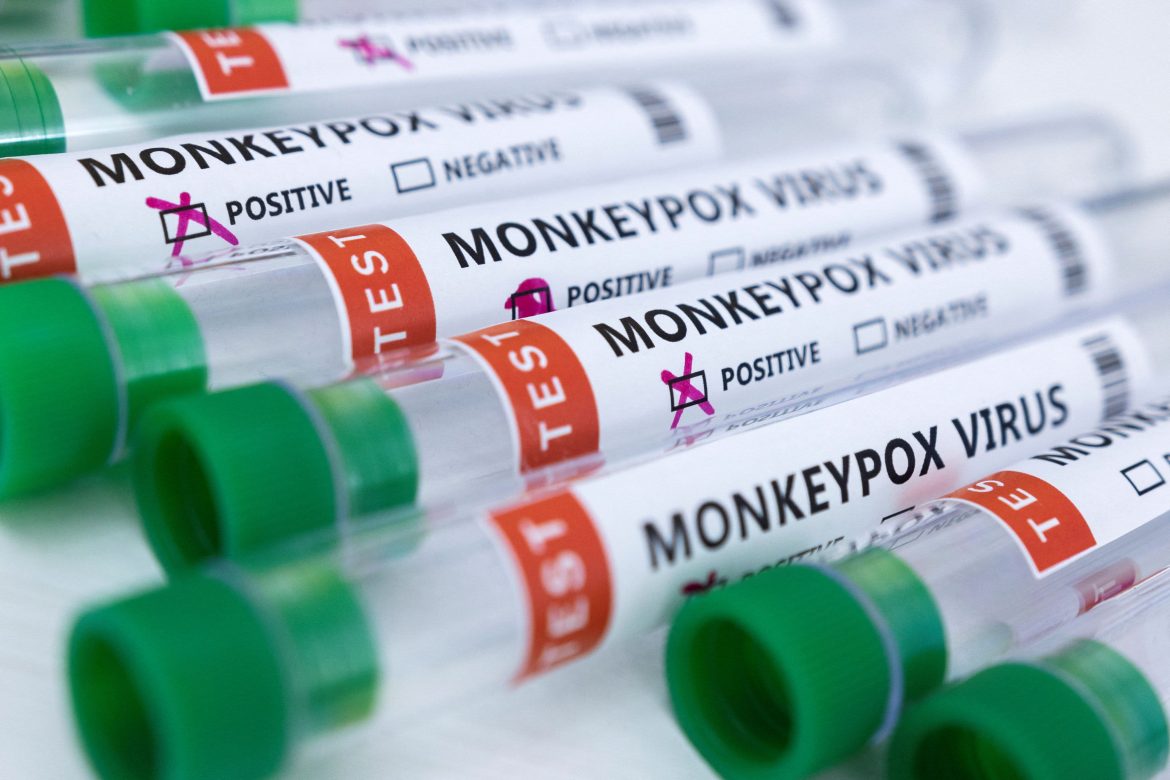According to a UC Davis Health research, using the antiviral tecovirimat to treat monkeypox skin lesions and symptoms appears to be both safe and effective. The study is one of the first to test and describe the effects of utilising this antiviral medication to treat monkeypox patients. Tecovirimat (TPOXX) is an antiviral medication licenced by the FDA for the treatment of smallpox.
It limits viral spread within the body by interfering with the action of the protein involved in the release of the encased virus. The Centers for Disease Control and Prevention (CDC) have approved the compassionate use of tecovirimat to treat adults and children with orthopoxvirus infections, including monkeypox. In a study letter published in the journal JAMA, infectious disease experts from UC Davis gave information on 25 monkeypox patients who underwent tecovirimat treatment.
“On the use of tecovirimat for monkeypox infection, we have a minimal amount of clinical information. There is still a lot to learn about the disease’s typical course and how tecovirimat and other antivirals might impact it,” Angel Desai, the lead author, said. She specializes in infectious diseases of adults at UC Davis Health.
As of August 22, 2022, there had been about 45,500 cases of monkeypox worldwide. According to a recent research, 13% of patients required hospitalisation, despite the fact that symptoms usually resolve on their own in 2-4 weeks.
Patients referred to UC Davis Medical Center, mostly by the Sacramento County Department of Public Health, were included in the new research between June 3 and August 13, 2022.
Oral tecovirimat was given to individuals who had skin lesions on several body parts or in sensitive areas such as the face or genital region. A high-fat meal should be eaten within 30 minutes of the weight-based therapy, and it should be repeated every 8 or 12 hours.
Clinical data were collected by in-person or telephone interviews at the first in-person evaluation for treatment, as well as on days 7 and 21 after the commencement of therapy.
The tecovirimat therapeutic regimen was completed by 25 individuals with a confirmed monkeypox infection. They were all gentlemen. They ranged in age from 27 to 76. (the median age was 40). HIV was discovered in 9 individuals.
After symptoms occurred, four patients received a dose of JYNNEOS immunisation, but only one patient received the smallpox vaccine (taken more than 25 years ago).
Symptoms in patients with monkeypox, MPX
According to the study, 92% of patients had lesions in their anal or genital regions. All patients had painful lesions, but only about half of them had fewer than 10 spots all over their bodies.
Prior to beginning their antiviral therapy, the patients had symptoms or lesions on average for 12 days. The majority of the patients (76%) had a fever, which was followed by fatigue (32%), a sore throat (20%), and chills (20%). Other symptoms included backache (12%), muscle pain (8%), nausea (4%), and diarrhoea (4%).
All of the patients finished the tecovirimat therapy and responded favourably to the medication. With the exception of one patient, they all received treatment for two weeks.
40% of patients had recovered from their lesions by day 7 of treatment. 92% had recovered and experienced no pain by day 21.
On day seven of therapy, the most common side effects were fatigue (28%), headache (20%), nausea (16%), itching (8%), and diarrhoea (8%).
“We must be extremely cautious when interpreting the data. It can be challenging to distinguish between side effects brought on by therapy and those brought on by an infection “said co-author and expert on infectious diseases George Thompson.
Thompson teaches at the UC Davis School of Medicine in the areas of internal medicine, infectious diseases, medical microbiology and immunology.
Also Read: Children with Down syndrome like crunchy, fatty meals and detest sticky ones: Study
The research was tiny and there was no control group. As a result, determining antiviral efficacy in terms of symptom duration and severity was challenging. The time between the development of symptoms and the initiation of antiviral medication differed amongst individuals.
Follow Medically Speaking on Twitter Instagram Facebook

